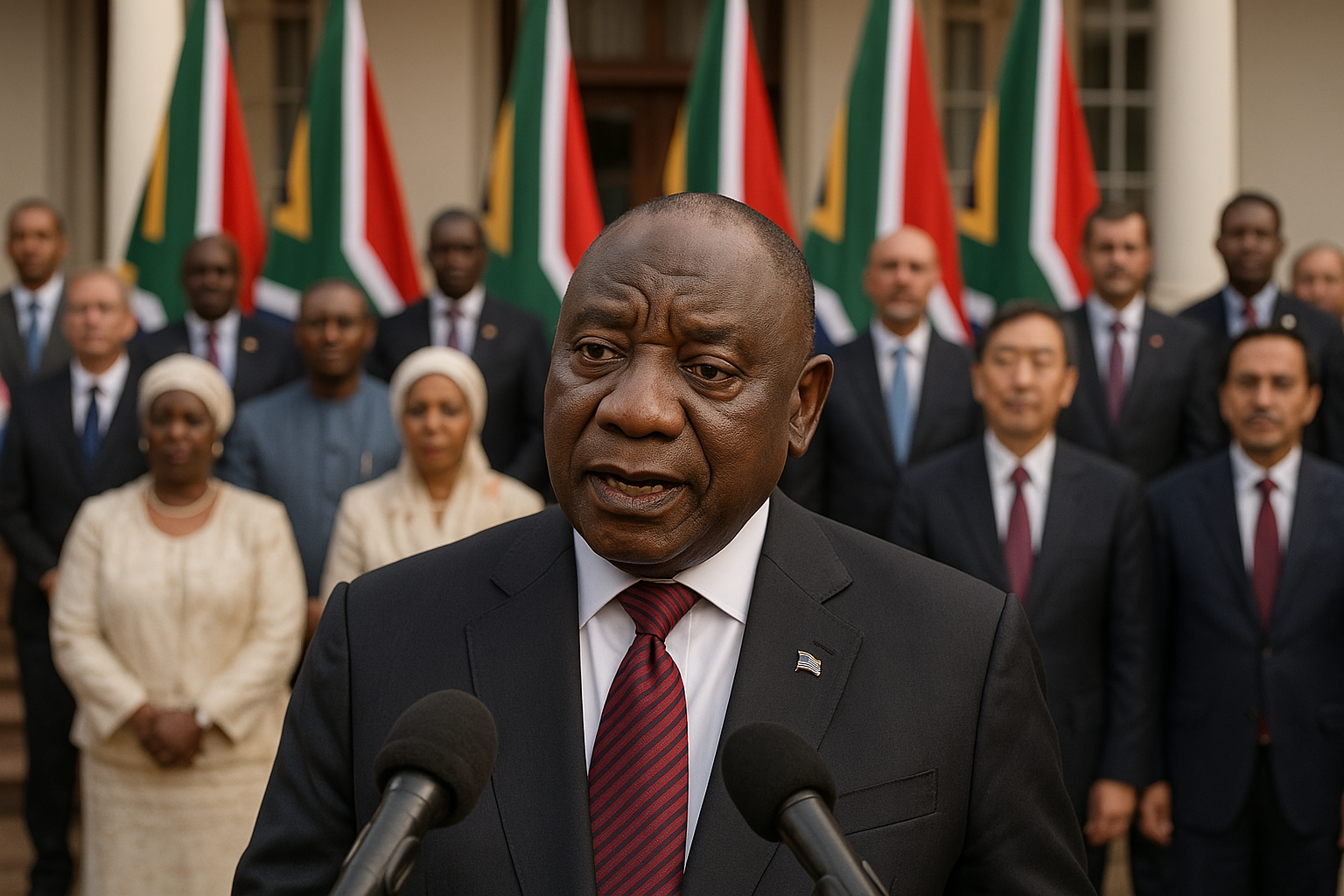Ramaphosa Urges Bold Action Ahead of Global Finance Summit for SDG Success
“We must emerge from the conference with bold decisions and an ambitious action plan that leaves no country, no community and no person behind,” Ramaphosa said.

- Country:
- South Africa
With the world nearing the halfway point to the 2030 deadline for the United Nations Sustainable Development Goals (SDGs), President Cyril Ramaphosa has called on the global community to deliver bold, inclusive, and transformative decisions at the Fourth International Conference on Financing for Development (FfD4), scheduled to take place from June 30 to July 3, 2025, in Sevilla, Spain.
Delivering his remarks during a high-level virtual preparatory meeting for the conference on Tuesday, President Ramaphosa framed FfD4 as a “crucial opportunity” to reimagine global financial systems to meet the urgent development needs of the world's most vulnerable populations.
“We must emerge from the conference with bold decisions and an ambitious action plan that leaves no country, no community and no person behind,” Ramaphosa said. “The world is in a race against time.”
A Global Call to Action
President Ramaphosa’s appeal aligns with growing concerns that the SDGs, adopted by all United Nations Member States in 2015, are far off-track. He referenced the 2024 UN SDG Report, which warned of slow or stagnant progress on several goals, particularly in developing regions.
“We must achieve these goals not merely because we have committed them to paper, but because the health, welfare and happiness of billions of people depend on the progress we make,” Ramaphosa emphasized.
He urged world leaders to align policy efforts, streamline multilateral cooperation, and work across platforms such as the G20, IMF, World Bank, and UN agencies to create a coherent financing architecture that delivers results on the ground.
Aligning G20 and Global Goals
As part of its ongoing G20 Presidency, South Africa has placed solidarity, equality, and sustainability at the forefront of its agenda. Ramaphosa reiterated that the country is using its leadership role to complement the aims of the FfD4 and prioritize the needs of developing economies, especially in Africa.
A central concern for South Africa and other low- and middle-income countries is sovereign debt distress. President Ramaphosa pointed out that:
-
23 African countries currently spend more on debt repayments than on critical sectors like health and education.
-
Developing nations face severe constraints due to high debt servicing costs, limiting their capacity to finance climate action and social programs.
“South Africa seeks to advance sustainable solutions to tackle high structural deficits and liquidity challenges, and extend debt relief to developing economies,” he said.
South Africa to Host FfD4 Side Event on Debt Sustainability
To further global dialogue on these pressing concerns, President Ramaphosa announced that South Africa will host a key side event at the Sevilla conference under the theme: “Forging a Common Agenda to Achieve Debt Sustainability in Developing Economies.”
This forum will bring together stakeholders from:
-
Global debt relief initiatives;
-
Development finance institutions;
-
Civil society and advocacy networks;
-
Government representatives and economic experts.
The aim is to build consensus on actionable debt solutions and identify areas of convergence across existing proposals such as the G20 Common Framework, Debt Service Suspension Initiative (DSSI), and various IMF-World Bank platforms.
Reshaping Global Financial Architecture
Ramaphosa's remarks come amid a growing push from the Global South to reshape global financial governance. Leaders have increasingly criticized the current international system for being outdated, unfair, and inadequately equipped to respond to global crises such as climate change, pandemics, and economic shocks.
At FfD4, the international community is expected to consider proposals including:
-
The establishment of SDG-aligned multilateral lending criteria;
-
Expanding Special Drawing Rights (SDRs) allocations for low-income countries;
-
Reforming credit rating systems to recognize climate and social resilience investments;
-
Strengthening domestic resource mobilization and fighting illicit financial flows.
A Turning Point
With just five years left to meet the 2030 goals, President Ramaphosa stressed that business-as-usual approaches are no longer viable. “The seriousness of the moment calls for ambition, clarity, and courage,” he said.
His remarks were echoed by other world leaders and international financial experts participating in the virtual meeting, many of whom signaled support for systemic reforms and renewed global solidarity.
The Sevilla summit is anticipated to result in a new global consensus on development financing and economic justice, with leaders hoping to define a concrete action plan that prioritizes people over profits, equity over exclusion, and sustainability over short-term gains.










